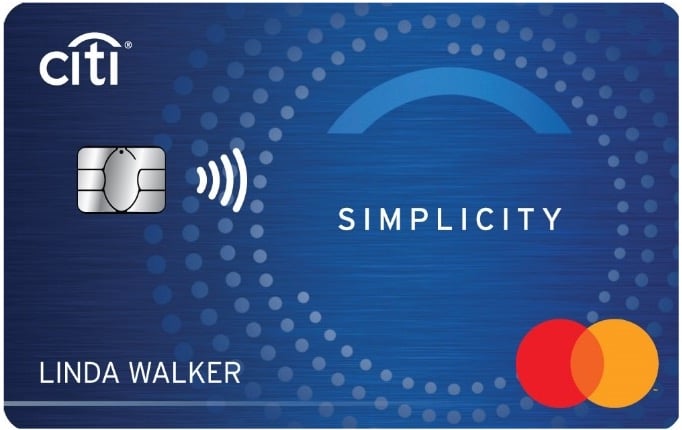BankAmericard Credit Card vs. Citi Simplicity: Citi Has an Edge
Citi Simplicity's longer intro APR period on balance transfers gives it a slim lead, although it may not be the superior pick for those wanting to finance a large purchase.

Many or all of the products on this page are from partners who compensate us when you click to or take an action on their website, but this does not influence our evaluations or ratings. Our opinions are our own.
The BankAmericard® credit card and the Citi Simplicity® Card can both work as get-out-of-debt tools.
Both are $0-annual-fee cards that feature lengthy intro APR periods for balance transfers and don’t charge penalty APRs. However, neither card offers rewards or much in the way of ongoing benefits, meaning neither will provide much value once that promotional interest period ends.
If you’re looking for a balance transfer card to pay down debt from another card, the Citi Simplicity® Card wins for its lengthier intro APR period on balance transfers and lack of late fees.
Here’s how the cards compare.
$0
$0
None.
N/A.
None.
None.
0% Intro APR for 18 billing cycles for purchases, and for any balance transfers made in the first 60 days. After the Intro APR offer ends, a Variable APR that’s currently 15.24%-25.24% will apply.
0% intro APR on purchases for 12 months and 0% intro APR on balance transfers for 21 months, and then the ongoing APR of 17.49%-28.24% Variable APR.
3% for 60 days from account opening, then 4%.
There is an intro balance transfer fee of 3% of each transfer (minimum $5) completed within the first 4 months of account opening. After that, your fee will be 5% of each transfer (minimum $5).
No penalty APR.
No penalty APR.
No late fees.
Where the Citi Simplicity has the upper hand
Longer balance transfer offer
The Citi Simplicity® Card offers new cardholders a 0% intro APR on purchases for 12 months and 0% intro APR on balance transfers for 21 months, and then the ongoing APR of 17.49%-28.24% Variable APR.
You'll owe a balance transfer fee of 3% (minimum $5) for transfers made within the first four months of account opening; after that, you'll pay a 5% fee for each transfer (minimum $5).
The BankAmericard® credit card offers a 0% Intro APR for 18 billing cycles for purchases, and for any balance transfers made in the first 60 days. After the Intro APR offer ends, a Variable APR that’s currently 15.24%-25.24% will apply.
It, too, charges a 3% balance transfer fee, but for only 60 days from account opening; after that, you'll pay a 4% fee for each transfer. So not only is the card's promotional offer on balance transfers shorter than what the Citi Simplicity® Card offers, but you have a shorter window of time in which to claim it at the lower fee.
The BankAmericard® credit card once featured a $0 balance transfer fee, along with a handful of other cards from major issuers. But these days, balance transfer fees are usually unavoidable, and it’s hard to find a "triple-zero" card that features a $0 balance transfer fee, a $0 annual fee and a long 0% intro APR period. (A few exceptions exist, mostly from credit unions.)
No late fees
You should aim to pay off your balance in full every month if you can. But if you are late, the Citi Simplicity® Card won’t punish you for it. The card doesn’t charge late fees, nor does it impose a penalty interest rate for paying late.
The BankAmericard® credit card won't raise your interest rate if you pay late either. However, the card does charge late fees.
If you're forgetful or have not set up automatic payments, the Citi Simplicity® Card can save you real money. Even so, be aware that paying late could hurt your credit scores if you're more than 30 days past due.
Where the BankAmericard® credit card has an edge
Longer intro APR period for purchases
The BankAmericard® credit card comes with a considerable intro APR period for purchases. New cardholders get a 0% Intro APR for 18 billing cycles for purchases, and for any balance transfers made in the first 60 days. After the Intro APR offer ends, a Variable APR that’s currently 15.24%-25.24% will apply.
The Citi Simplicity® Card for purchases isn't as long. It offers. a 0% intro APR on purchases for 12 months and 0% intro APR on balance transfers for 21 months, and then the ongoing APR of 17.49%-28.24% Variable APR.
Which card should you get?
Both cards offer a lengthy break from interest for balance transfers, but the Citi Simplicity® Card wins out with a promotional period approaching two years.
Again, neither card comes with long-term benefits, like rewards. So once you've paid off your balance transfer, you may want to consider asking the issuer for a product change, which both Bank of America® and Citi allow. You can call the number on the back of your credit card to do this.
But that's not your only option. There are cards that offer both a 0% APR period and ongoing value through rewards. The $0-annual-fee Blue Cash Everyday® Card from American Express is one such card. It features a 0% intro APR for 15 months on purchases and balance transfers, and then the ongoing APR of 19.49%-28.49% Variable APR. Terms apply; rates and fees.
And you’ll earn rewards on everyday spending with the card, too: 3% cash back at U.S. supermarkets on up to $6,000 spent per year; 3% cash back at U.S. gas stations on up to $6,000 spent per year; 3% cash back on U.S. online retail purchases on up to $6,000 spent per year; and 1% cash back on other purchases. Terms apply; see rates and fees.
Find the right credit card for you.
Whether you want to pay less interest or earn more rewards, the right card's out there. Just answer a few questions and we'll narrow the search for you.





